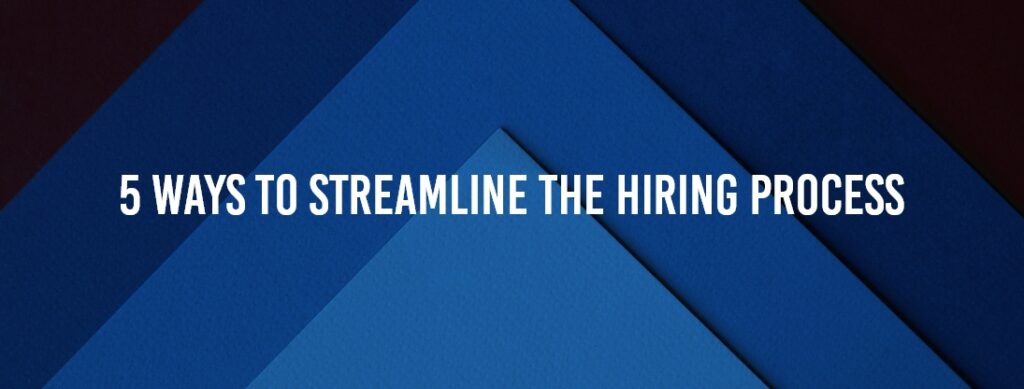
How to Hire Consistently & Successfully
When it comes to ensuring a smooth hiring process too many companies fall short of the transparent and efficient protocols and allow slow and ineffective processes to grind their hiring to a halt. If we have noticed anything in the wake of the recent Ever Given blockade it is how much one obstacle can achieve just that; draining billions of dollars, resources, and bringing global supply chains to a near stop.
In today’s climate with the candidate talent pool bursting in some areas and shrinking rapidly in others, enabling the right number and quality of candidates across the board is vital. To do this, companies need to be willing to iron out the creases in their recruitment processes so that they can both retain candidate interest in a competitive market, and be consistent in their long-term approach to successful hiring.

Prioritise hiring
Ensuring that hiring managers and interviewers are committing time to hiring and are engaged in the process from the start is crucial to keeping candidates active. If the hiring process is prioritised by those conducting the interviews it can prevent a plethora of problems further in the process. For example, cancellations and rescheduling interviews which can have a knock-on effect on the number of candidates who lose interest and drop out of the process.
Improve decision making
Gartner finds that decisive hiring managers hire 10% more high-quality candidates faster yet more than three quarters of hiring managers do not act decisively. A potential reason for this is too many decision-makers and a lack of alignment in what they are looking for. A call for clear decision maker alignment and having a cohesive and agreed upon set of criteria can massively speed up the process. This problem can often materialise in a disconnect between Partners and HR teams and can be addressed by unifying expectations in terms of the ideal candidate’s background and skills.
Enhance transparency
Being clear from the start on the definition of the role and the expected responsibilities. Often candidates can progress as far as final stage interviews as conversations focus introspectively on their background and what they can bring to the role. As a consequence, candidates miss lucidity on what is expected of them when and if they are successful.
Honesty and transparency in terms of salary bands with candidates at the start means that time invested in getting a good candidate across the finish line is not wasted by problematic salary expectations or demands. Being upfront can save hiring managers and partners and candidates from wasting time on an opportunity that does not suit the client or the candidate’s salary needs.
Set realistic hiring expectations
When it comes to hiring for a specific team or practice within the company an important factor is ensuring you do not lose sight of how many hires your company or team can realistically afford to make. In many cases it is easy to start at a higher number and eliminate candidates as they go through the process. However, if out of 25 + potential candidates your company is only looking for around 3-4 strong hires; this may compromise not only quality but one on one time spent with the most promising candidates, risking a loss in interest. Peter Cappelli from Harvard Business Review suggests creating a smaller but better-qualified applicant pool to improve the yield of hiring.
Setting defined expectations about where you are sourcing your candidates from and how likely they are to leave their position and company for the opportunity can prevent indecision from candidates and last minute drop outs. It is important to think carefully about a candidate’s career trajectory, attain people of the right level, and take into account how the reputation of their current company may affect their decision to move.
Put time and effort into a fully realised rejection process
Finally, but by no means the least important aspect is the rejection process. Swift and constructive feedback is crucial to maintaining a reliable talent pool that can be relied on again. According to Forbes “up to 15% of all new hires do not work out within the first two months.” Having strong relationships with close-call candidates could be a life ring for hiring managers.

Similarly improving general communications between employer and candidate after the initial interview helps to retain interest. A recent survey found that 62% of professionals said they lose interest in a job if they don’t hear back from the employer within two weeks — or 10 business days — after the initial interview.
As we adapt processes to remote hiring and have more automation in technology at our disposal, it is important not to lose sight of the individual and how significant quick and personalised feedback can be. It can also help to clearly define what the company wants or does not want from candidates and mean that future candidates adhere more closely to the decision-makers standards.
IRG work continuously to streamline the hiring process and provide the best services for our clients. Please visit the below pages for more details about our hiring methodology:
Or contact us here for further information.


